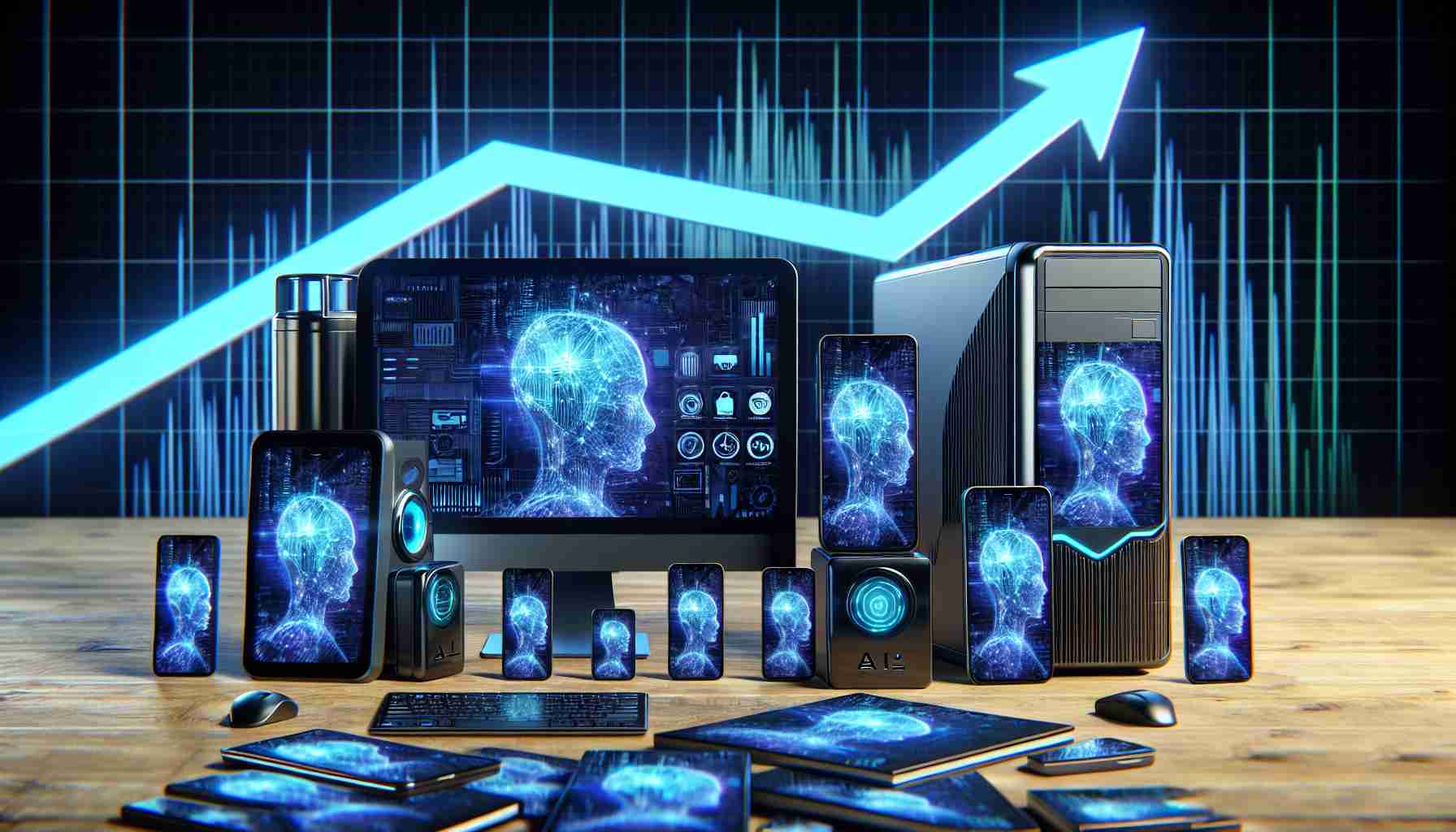In a significant market evolution, Gartner’s latest forecasts reveal a substantial upsurge in the shipments of AI-enabled PCs and GenAI smartphones for the year 2024. A staggering 295 million units are projected to be shipped by year-end, marking an exponential growth from 29 million units in 2023. This surge underscores a pivotal shift towards on-device AI capabilities, signaling a new era in technology where artificial intelligence is not just an add-on but a fundamental component of personal computing and mobile devices.
The rise of AI PCs and GenAI Smartphones
AI PCs, as defined by Gartner, are personal computers enhanced with dedicated AI accelerators or cores, including neural processing units (NPUs), accelerated processing units (APUs), or tensor processing units (TPUs). These advancements enable PCs to handle AI and GenAI workloads more efficiently and effectively without depending on external servers or cloud services. Meanwhile, GenAI smartphones are equipped with the hardware and software necessary to seamlessly integrate and execute GenAI-driven features and applications directly on the device. Such capabilities allow these smartphones to run AI models locally, generating new content, strategies, designs, and methods.
This year’s forecast estimates that 240 million GenAI smartphones and 54.5 million AI PCs will be shipped, representing 22% of the global market share for both premium smartphones and PCs. Gartner’s Ranjit Atwal emphasizes that the rapid adoption of on-device GenAI capabilities will soon become a standard expectation for technology vendors, reshaping the competitive landscape.
Market impact and future prospects
Despite the impressive growth in AI PC and GenAI smartphone shipments, this technological integration is not expected to drive a significant increase in end-user spending in the short term. For business device buyers, the value proposition of investing in AI-enhanced devices hinges on software providers’ ability to leverage on-device AI to demonstrate clear benefits. However, the potential for on-device AI to rejuvenate PC marketing and sustain existing replacement cycles is evident, offering a counterbalance to the challenges posed by a disruptive socioeconomic environment.
In the smartphone sector, GenAI enhancements are predicted to evolve user experiences with advanced camera and voice integration capabilities. However, without groundbreaking applications, consumers are unlikely to pay a premium for GenAI smartphones. The transformative shift, according to Atwal, lies in the development of smaller versions of large language models tailored for smartphones, which could elevate user experiences by making devices more intuitive and responsive to human language and visual cues.
Despite recent growth, the outlook for the smartphone market remains cautious, with a 4.2% growth in worldwide shipments expected in 2024, reaching 1.2 billion units. This growth is seen more as a market stabilization rather than a robust recovery, with shipment volumes still trailing behind those of 2022.
The integration of AI into PCs and smartphones marks a significant milestone in the evolution of consumer technology, with 2024 set to witness a remarkable increase in shipments of these devices. While the immediate impact on consumer spending remains to be seen, the long-term implications for user experience and device functionality are profound. As technology vendors continue to innovate and leverage AI capabilities, the future of personal computing and mobile devices looks set to offer even more personalized, efficient, and intuitive user experiences.





